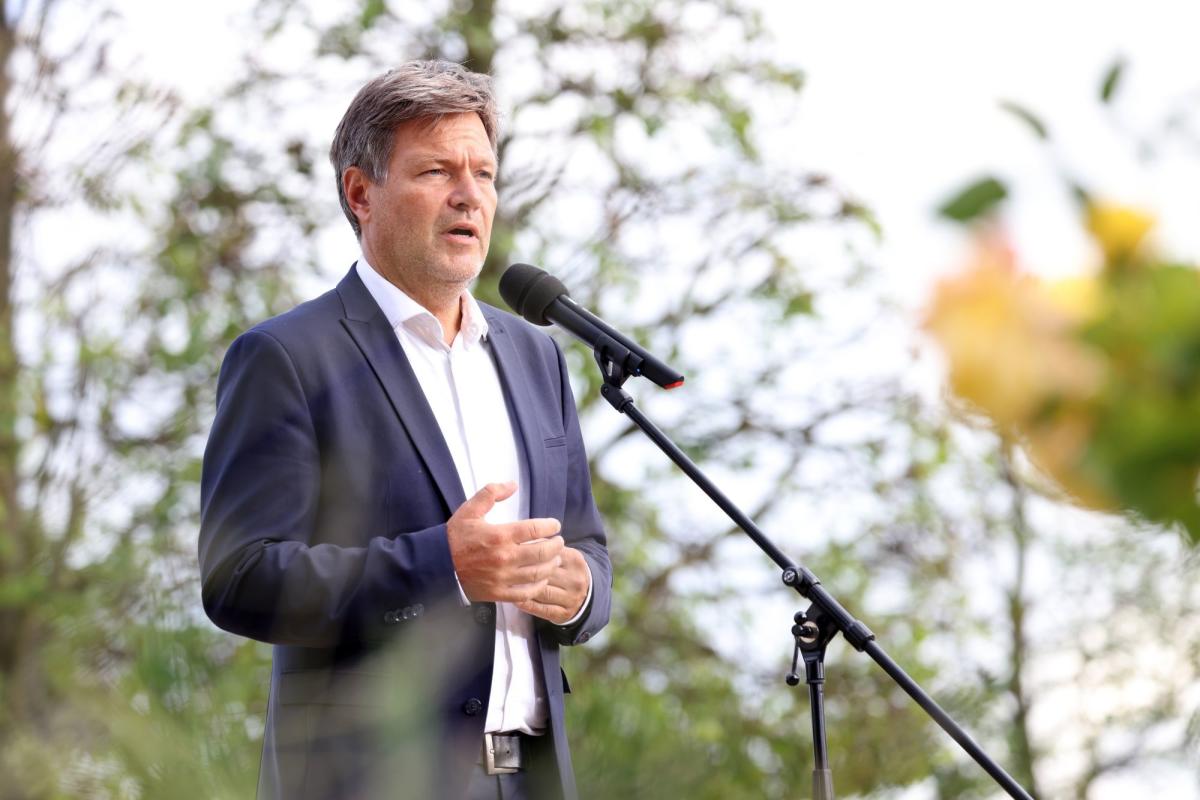
(Bloomberg) — Germany will support companies hit by the energy crisis by widening a pandemic-era aid program to help companies hit by surging costs.
Europe’s largest economy is at the center of the continent’s energy crunch as Russian President Vladimir Putin slashes supplies in retaliation for sanctions related to the war in Ukraine. Concerns have been mounting that Germany could face a wave of bankruptcies in the fallout from the crisis.
After the ruling coalition agreed on measures to support consumers, Germany will make funding available to strapped businesses. The criteria for aid could include the relation between energy costs and production expenses or turnover, according to Economy Minister Robert Habeck.
“We will open a wide rescue umbrella,” he said Thursday in a speech to lawmakers in Berlin. “We will open it widely so that small and medium enterprises can come under it.”
Habeck, a member of the Green party who is also vice chancellor, has been under fire on numerous fronts for his handling of the intensifying crisis. After bungling a gas levy on consumers, he stoked controversy by suggesting on a television talkshow this week that bakers and other small businesses might cease operations in the fallout from shortages.
The comments came after toilet paper-maker Hakle GmbH filed for insolvency earlier this month, becoming one of the first consumer goods manufacturers to run into trouble because of higher energy and raw-material costs.
‘Shock Absorber’
Finance Minister Christian Lindner called on banks to do their part to help facilitate lending to help provide a financial buffer for companies.
“As we approach an economic escalations that will require adjusting to a difficult situation in the national economy, we should not first look at the state, but rather the role played by the private financial sector, as a shock absorber to some degree,” he said at a banking conference in Frankfurt. “The state can provide support, but initially and in most cases this is also a task for the private banking sector.”
Lindner added that the government is looking to facilitate the effort by adjusting rules on credit liabilities.
In a parliamentary committee late Wednesday, Habeck signaled that he would consider opening up an already existing fund to more companies, according to a participant in the meeting. So far, only about 20% of the 5 billion-euro ($5 billion) program launched during the Covid-19 crisis had been used up, he said.
Bolstering the fund’s resources could run into issues with constitutional debt limits, Habeck said, according to the participant, who asked not to be identified because the meeting was private. Lindner opposes breaching the so-called debt brake.
Habeck has also come under heavy criticism over a plan to keep two of the country’s three remaining nuclear reactors in reserve into next year, instead of shutting them down as planned. The operator of one of those units warned the plant isn’t suitable for backup power.
In his speech in parliament, he indicated that the crisis is likely to last beyond this winter, but said the support for businesses will be temporary as Germany works with European partners to reform energy markets or tap profits from companies benefiting from the crisis.
“We are looking at the electricity market design,” said Habeck. “If this doesn’t work immediately and solidly, then we also consider the option of a windfall levy and give this back to the citizens.”
(Updates with comments from the finance minister)
More stories like this are available on bloomberg.com
©2022 Bloomberg L.P.




